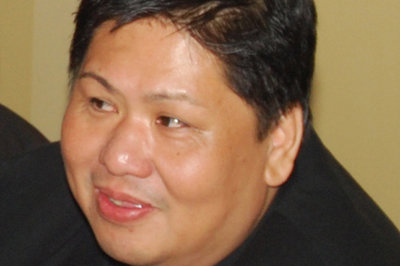Ron Sy, executive director of ASIAC for the past 12 years, will step down from his position this summer. Sy plans to leave the agency by August and, before then, will work with the ASIAC board to find a suitable replacement.
Sy, a native of the Phillipines, came to ASIAC in 1996 to work as a program director after holding a similar position at the Asian American AIDS Foundation in Chicago.
“At the time when I started working for HIV, there was a really strong sense of urgency that something needed to be done,” he said. “I felt like a lot of people at that time did [and] wanted to put in the time to fight the epidemic.”
Sy said it was ASIAC itself — and not necessarily the City of Brotherly Love — that brought him east.
“I was really attracted to the potential of doing good work,” he said. “The executive director at that time, Richard Liu, had a great vision for coming up with culturally specific services for our communities. I interviewed for the job and fortunately was selected.”
Two years later, Sy saw another job opportunity as Liu, the founding executive director of ASIAC, stepped down from the position after three years at the helm.
Sy said the transition to executive director went smoothly and, in the past 12 years, the agency itself underwent several important transitions that have improved the health and opportunities of the Asian and Pacific Islander communities in the region.
Sy helped grow ASIAC’s successful Jaded Lounge, a monthly party and HIV-intervention program the agency produced from 1997 until last year, and was influential in strengthening and diversifying the organization’s myriad HIV prevention, testing, counseling and other services.
Sy said one of ASIAC’s most notable developments has been its efforts to work with community members who speak little or no English to ensure they’re exposed to the same prevention messages and have access to the same services as others in the region.
“We’ve been able to make sure that HIV services are accessible to everyone, including limited-English proficient communities,” Sy said. “I think that’s really been our biggest accomplishment. We’ve been able to offer interpretation and translation to support anyone, despite their ability to speak English or not.”
He noted that while the agency, like many HIV/AIDS service organizations, has struggled with a lack of resources over the years, the partnerships ASIAC has formed with other local groups have proven integral to its success.
Those community connections also benefited him personally, he said.
“I learned a lot from being executive director, especially from my fellow community advocates. I worked very closely with my fellow executive directors, who’ve all contributed so much to the fight against HIV,” Sy said. “I’m inspired by them, and I’ve learned so much from them. I’ve been privileged to be part of the movement that provides services to so many different communities here in Philadelphia.”
Sy said the staff at ASIAC has also been inspiring.
“I have to say, the staff at ASIAC are really my heroes. They’re on the front line, providing services. Despite the difficult lack of resources, they’re able to provide services to people who need it the most. And that’s what’s kept me going every day, the frontline work our staff has done over the years. I feel privileged to know the many people who’ve worked with ASIAC or who’ve moved on to other endeavors but left their mark with the agency.”
Former ASIAC board president and current member Giang Nguyen said Sy has also left his own indelible mark on the agency.
“Ron’s previous work in Chicago, his ability to foster relationships with local and national health agencies and institutions and his creativity in developing and implementing programs were instrumental in making ASIAC one of the largest Asian and Pacific Island nonprofit community-based agencies in the Philadelphia area,” Nguyen said.
Board president Dr. Bich-Thuy Sim noted that “through his leadership and hard work, Ron has established a solid legacy for ASIAC’s next executive director to build on.”
Sy said he’s confident that ASIAC’s staff, volunteers, board and funders will “continue to serve as a model for other organizations in addressing the cultural and linguistic gaps in the health and social-service system.”
For his own new endeavor, Sy said he’s considering returning to school, but for now is looking forward to taking some time off.
“I’ve been at this for a while, 14 years. That’s a lot of time. And I really just think it’s time for the agency to find some new leadership and head in a new direction to bring it forward into this new decade.”
Jen Colletta can be reached at [email protected].

